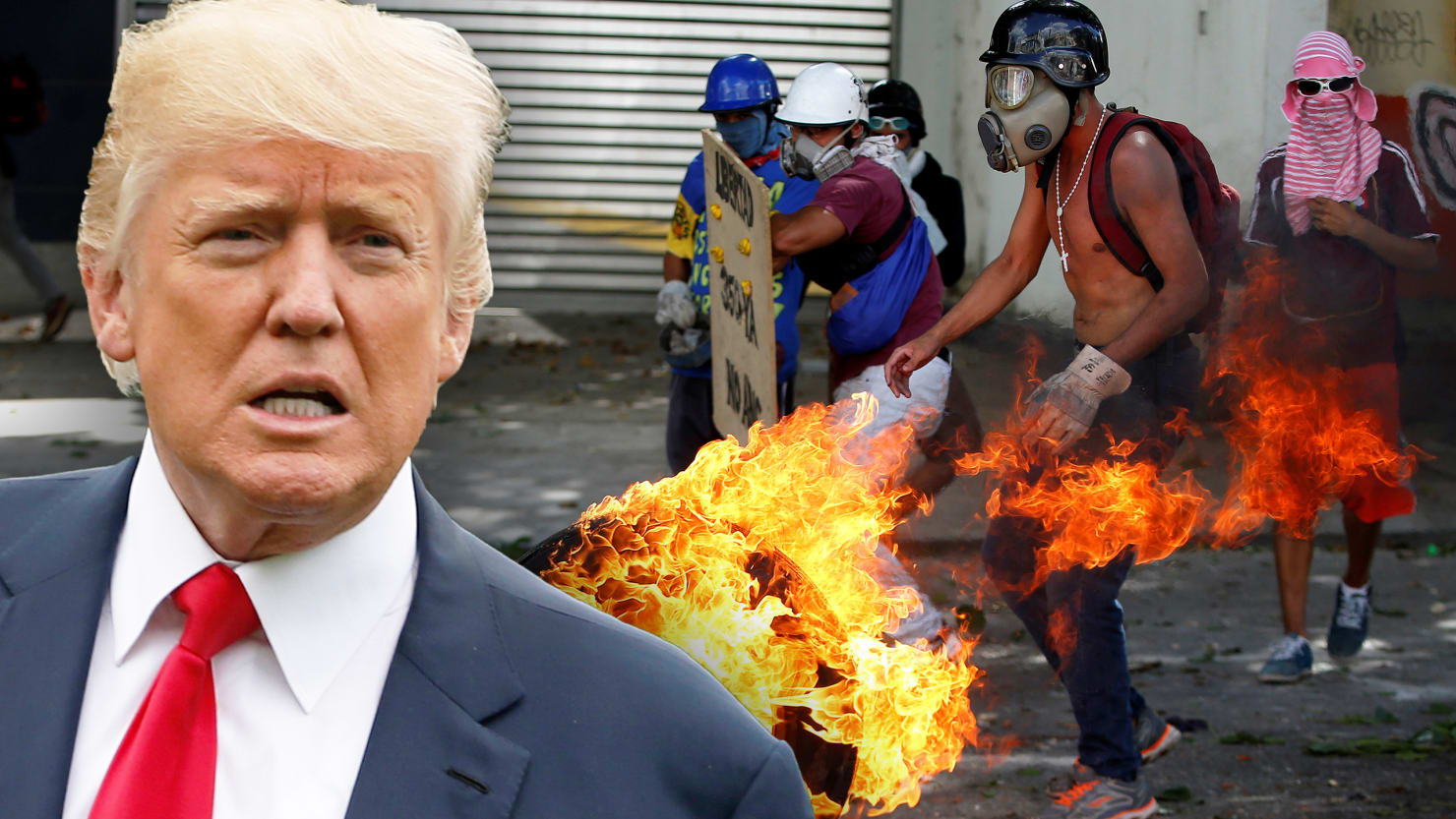
The politics of President Trump in Venezuela have upped the pressure after Maduro’s authoritarian drift, hinting at the idea of military intervention.
Erratic in a large part of international relations, Donald Trump’s policies in Venezuela have been consistent since the Republican arrived at the White House just two years ago. Trump’s administration officially recognized the leader of the opposition Juan Guaidó as interim president effective immediately, following an increase in sanctions against the regime of Nicolas Maduro, including against the president himself and his inner circle, while also introducing economic measures with the aim of financially strangling the government.
Comparing the sanctions of the Democrat Barack Obama to those of his successor is complicated, what with the change in political climate, Maduro’s authoritarian drift, the lethally increasing poverty of the country and the growing exodus of Venezuelans. In May 2017, the newly elected Trump administration sanctioned the president and seven members of the Supreme Court of Venezuela. Months later, he opened the can of worms that is economic sanctions, a risky action that ended up impacting the population without a guaranteed toppling of the regime. Washington banned buying debts owed to PDVSA, the state owned oil company, a harsh blow to one of the biggest sources of income in the country, but it has not applied embargoes to crude oil, of which the U.S. is a main buyer.
Washington, in any case, pulled out a hammer against Caracas. The Republican, anti-socialist voice of Marco Rubio influenced this policy. For better or for worse, however, it is easy to imagine the Obama administration taking a similar hard line against Maduro, with the deterioration of the country and its democracy. In the weeks before May 2017, one of the turning points in the escalation of sanctions was the 44 deaths in protests against the new constitution announced by Maduro, which aimed to isolate the opposition.
This week, trademark Trump diplomacy appeared when the president started talking lightly of military intervention in Venezuela. Washington made it abundantly clear that it was keeping every option open. Trump was more explicit. “We have many options for Venezuela, including a possible military option, if necessary,” he said in a light tone from his golf club in Bedminster, New Jersey in August 2017. “I’m not going to rule out a military option … This is our neighbor … we’re all over the world, and we have troops all over the world in places that are very, very far away. Venezuela is not very far away, and people are suffering, and they’re dying,” he insisted.
The United States has not threatened to use military force in Latin America since the invasion of Panama in 1989. The president’s tone evokes the Cold War era and is a marked contrast to the isolationist line taken in other conflicts, such as in Syria. National Security Advisor John Bolton also spoke to the neighborhood issue. “The fact is that Venezuela is in our hemisphere. I think we have a special responsibility here.”

Leave a Reply
You must be logged in to post a comment.